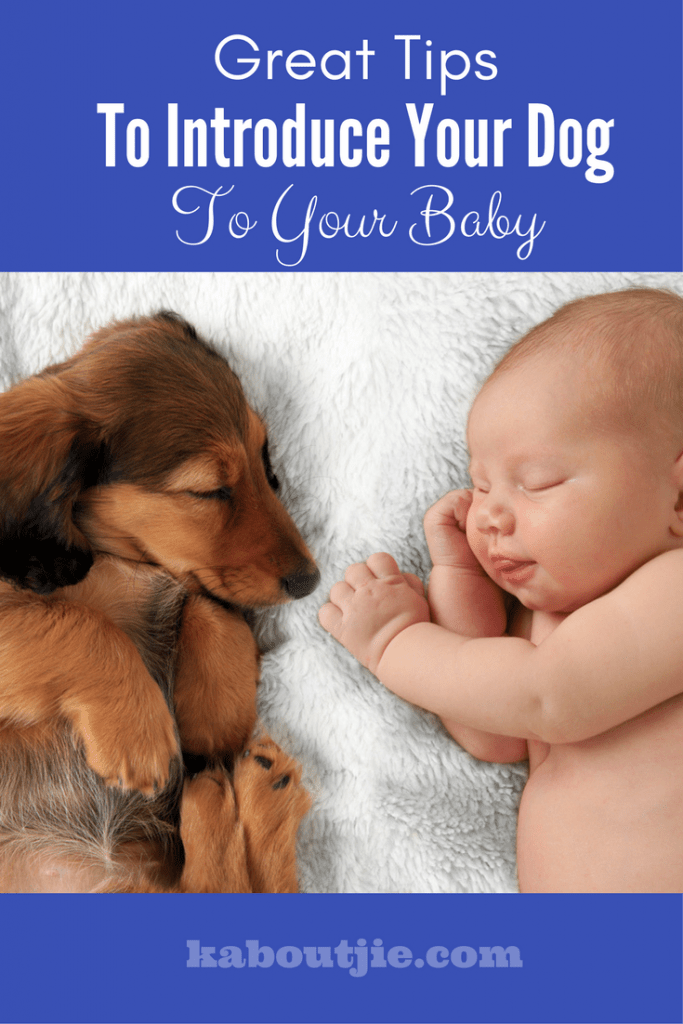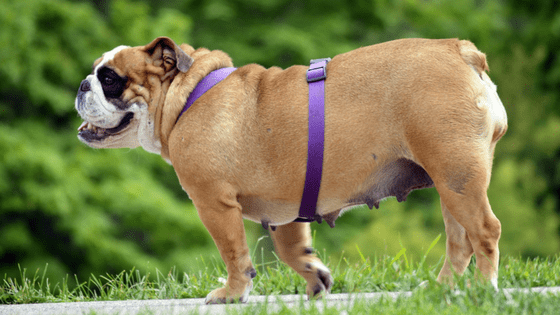Dogs are truly the most remarkable pets and deserve all the love and attention they can get. But what happens when your furry friend thinks that he is not the center of attention because of the baby? What’s exciting for you and your spouse may prove to be frightening for your dog.
Sure, dogs are naturally good with babies, but you ought to make sure that your pooch is prepared to receive the new member of the family in the right spirit. After all, dogs are known to experience jealousy, and some dogs may even show violent tendencies. Certain breeds, such as pit bulls, have a reputation for being dangerous, however it is essential to remember that in most cases the way that your pet has been bred, raised and trained will have the biggest impact on the behavior of your dog.
So, what do you do to prepare for the big moment? Relax! This guide will give you tips on how to prepare your dog for the baby’s homecoming so that they develop a sibling-like bond.

7 Great Tips to Introduce Your Dog to Your Baby
1. Be The Leader
The good news is that you will have at least 3 to 6 months to prepare for the baby’s arrival. There is enough time for you to correct your mutt’s unwanted behaviors, enforce regulations, and establish yourself as the pack leader. Don’t worry; we are not asking you to be extra strict with him. Just reinforce some healthy habits and make sure both of you work through the bad ones.
2. Make Subtle Yet Gradual Changes To Your Dog’s Routine
Aside from taking regular basic obedience classes, you should strive to bring incremental changes to your dog’s routine. Changes in the time your dog gets walked, when he sleeps, which parts of the house he’s allowed to explore can make quite a lot of difference in prepping him for the big day.
If done right, your dog should be familiar with the changes and will not associate them to the baby coming home. The aim here is to make the transition from being a single child (referring to the dog) to becoming a loving sibling as smooth as possible.

3. Provide Limited Attention
Okay, this might sound harsh, but let us assure you that it is not. Your dog is your first “baby,” and he deserves all the love in the world. But to prepare for your next baby’s homecoming, you must teach him to be comfortable with less attention. The last thing you want is for your pampered dog to feel estranged all of a sudden when the baby comes home.
Try to lessen the amount of work time, play time, and the attention you pay to your dog at least 3 to 4 weeks prior to the baby’s arrival.
4. Familiarize Your Mutt With The Baby’s Scent
A dog’s sense of smell is astounding! To familiarize your pup with the baby even before you bring him/her home, you can bring an item from the hospital that contains their scent. A piece of cloth such as a towel, burp cloth, or anything that contains the baby scent will do just fine. The purpose of this exercise is to set clear boundaries and create respect for the child.
Introduce the new piece of cloth to your dog while maintaining a distance and see how he reacts. Make the dog sniff it from a distance while you hold them tight. This practice will reinforce the belief that the piece of cloth belongs to you and he has to take your permission to interact with it in any way.

5. Set Strict Boundaries Around The Nursery
By now you’ve probably got a nursery set up and ready to welcome the new little member of your family. This would be an excellent time to try and condition your dog to think that there is an invisible barrier that he should not cross. Start by putting the nursery completely off-limits and then gradually allow your dog to explore the room.
Supervise what your dog is doing, what he’s sniffing, and how he reacts at all times. Train your dog to leave the room when asked. The purpose of this practice is to let your dog know that the place belongs to the pack leader and it warrants respect at all times.
6. Play A Tape Recording Of Your Baby’s Sound
Dogs are keen learners and often pick up sounds more closely than what they see or smell. To let the dog get an extra bit familiar with the baby, play his or her sounds in increasing length of time. When you finally bring the baby home, your dog will be adjusted with the sounds and noises of the new family member.
7. Be Controlling During The Introduction
So, you did everything you could to make your pup more obedient and respectful to the baby’s homecoming. Now it’s time for the final test! When the baby finally arrives home, make sure the dog is not present. The ideal thing would be to have someone take him out on a walk and bring him back once he is drained of all energy.
Ensure that your dog is calm and displaying signs of obedience before you invite him in. Your furry companion will instantly recognize the somewhat familiar scent in the house. Either the father or the mother should be holding the baby, and preferably the toddler should be calm as well. Allow your dog to sniff from a respectful distance.
At the very first meeting, don’t let the dog will get too close to the baby just to be extra safe. You can eventually allow your canine companion to get familiar with the new family member. This exercise will teach the dog to respect your new child as another leader of the pack.
Do you need the help of a professional?
If you believe that you cannot train your dog alone for the baby’s arrival, don’t hesitate to reach out to a professional for help. Oh! Don’t forget to shower your K9 companion with the same level of affection and care that you did before. This will help him to feel secure while sharing it with a new member of the family.
About The Author
June is the founder of TobysBone, where she shares her passion for writing and love for dogs. She wants to help you deal with your dog’s behavior issues, grooming and health needs, and proper training. Through her blog, you can find informative and reliable posts, tips and tricks, and a lot of interesting reads that will help you maintain a close bond with your furry companion.
 Kaboutjie SA Mommy Blogs by Lynne Huysamen
Kaboutjie SA Mommy Blogs by Lynne Huysamen





@lynne – I absolutely LOVE the fact that you mentioned the Pit bull bred and went on to say its all about how you raise your dog. My little girl has just turned 5 and we have a red nose Pit bull called Cyrus. I WISH i could post a picture for you, they are inseparable and she lies on him and they cuddle and they simply are BEST FRIENDS!! He is beyond gentle with her and its simply amazing to watch 🙂
I love dogs @tamara737 – they are amazing. Here is an interesting article that I came across on Huffington Post a while back saying it is NOT all how you raise your dog and I think that she has it spot on. There is nature and nuture, and while both play a role we need to remember that just like people dogs are all unique with their very own personalities.
A human that is abused may become an abuser, or perhaps a very loving person. You really just can’t tell can you?
My personal feeling is that Pit Bulls can make amazing pets. My husband had one and my father in law has one now, I also have friends that have them and they are lovely animals.
She really does, doesn’t she? @lynne.
I like it! and while it saddens me tremendously reading about dogs and dog fighting, its nice to know that there is indeed hope 🙂
I think its also important to remember, that even though we love them and they are a part of our family, they are still animals. So we have taught our little one the basics on not upsetting him as well 🙂 no ear pulling, yanking his tail and so on.
Its a two way street and children need to be “raised” right as well lol
My son is totally scard of the dogs he is a cat person.
My little guy recently discovered horses. We had our maternity shoot done where I previously stabled my horses. As I had horses before I had babies. My love affair with horses started as a child and my parents have always supported it. However now that its my baby wanting to ride I am very nervous. Couldn’t he just love dogs? Horses are so big and dangerous. I have first hand experience of how dangerous and unpredictable as I rehabilitated 2 severely abused Arabs. My heart is cringing. it is wrong that I am wanting to steer him far far away from horses?